Lucy Pearson Regional Director Sub-Saharan Africa
British Council nurtures Africa’s youth through creativity
Every year, International Youth Day is celebrated on 12 August. The day is a reminder to the world of the promise, dynamism, and creativity that young people bring to society. As Africa faces both extraordinary opportunities and urgent challenges due to its rapidly growing youth population, the British Council stands at the forefront of championing youth capacity building. Working alongside local partners across various African countries, the organisation harnesses arts, education, and skills development to assist the next generation to shape their future and the future of the continent.
‘The British Council is committed to recognising the immense talent and potential of Africa’s youth, and creates skills, capacity, and life-changing opportunities for young people on the continent,’ said Lucy Pearson, Regional Director Sub-Saharan Africa at the British Council. ‘We are inspired daily by the innovation, resilience, and passion we see across our programmes, made possible through key partnerships. It is our local partners who understand the cultures in a more nuanced way, which increases the reach and impact of these programmes and contributes to the longevity and sustainability of our efforts.’
Catalysts for Growth: The Creative Economy and African Youth
Across Sub-Saharan Africa, the creative economy has surged as an avenue for job creation, cultural pride, and economic growth. The British Council’s Creative Economy programmes are designed to unlock this potential by equipping young people with entrepreneurial, artistic, and business skills. These initiatives not only offer grants, skills training and mentorship but help youth foster networks locally and globally.
For young Zimbabwean artist Kim Makumbe, the Music Connects Africa programme (formerly Scripts and Bars) was a springboard at a defining moment in her career. With support from the programme, Kim was able to produce and release a single and its accompanying music video for her song ‘Body.’ When the song was playlisted on Trace Africa in March 2023, Kim’s music found the momentum it needed, expanding her reach in Zimbabwe’s lively music scene. ‘Kim Makumbe’s success story is testament to the impact of the Scripts and Bars creative incubator programme’ and further highlights that more than 230 emerging artists have since monetised their work, creating 39 direct and 100 indirect jobs.
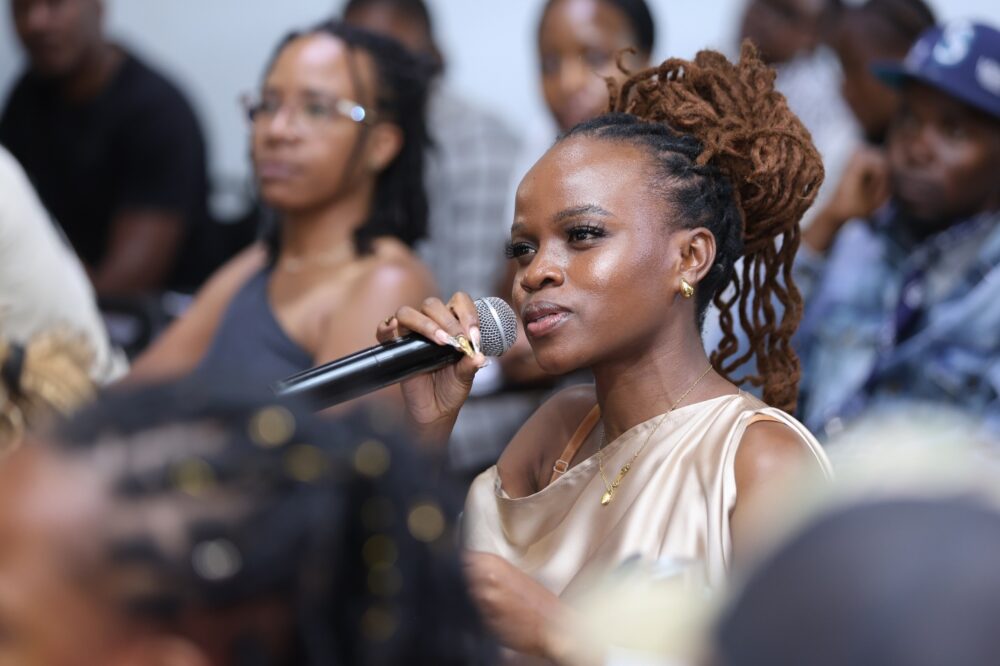 Kim Makumbe Zimbabwean music artist
Kim Makumbe Zimbabwean music artist
Other creative economy initiatives, such as the Creative DNA project, have supported young fashion entrepreneurs across Kenya, Uganda, Senegal, Malawi, Zimbabwe, Nigeria, and Ethiopia to break into international markets, showcase at fashion weeks, and build sustainable enterprises. Since its inception, the programme has incubated more than 230 fashion businesses, enabling them to grow through linkages with the UK market. For example, Betselot Zegwe, Founder and Creative Director of Zemenay (Ethiopia) who has had the opportunity to showcase at the Creative Africa Nexus Intra-African Trade Fair (IATF2023) – CANEX@IATF2023 in Cairo, Egypt, showcased at the renowned Hub of Africa Fashion Week in 2024 and was featured in Vogue Italy and Vogue USA. Opportunities such as these have helped beneficiaries gain international exposure and contribute to Africa’s growing creative economy.
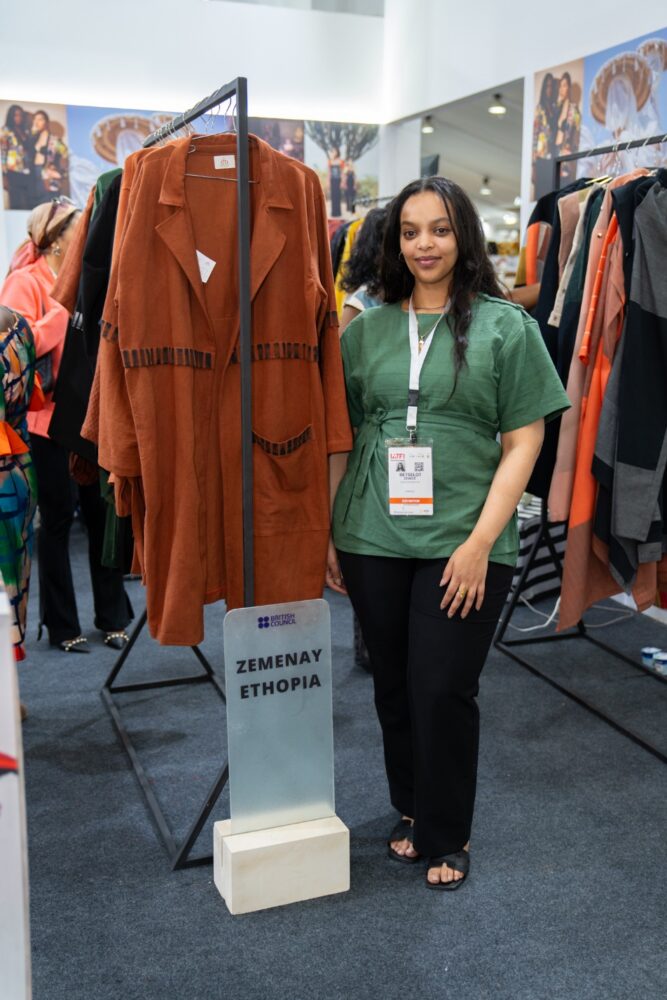 Betselot Zewge Founder and Creative Director of Zemenay (Ethiopia)
Betselot Zewge Founder and Creative Director of Zemenay (Ethiopia)
Another example is Henry Uduku, Founder and Creative Director of Henri Uduku (Nigeria) who has showcased at CANEX@IATF2023 Cairo, Egypt, Creative Economy Week Zimbabwe 2025 and will be showcasing at Africa Fashion Week London 2025 this August 2025, where a selection of international buyers will interact with the collections. In addition to the exhibition and showcasing, he will as part of a delegation of 10 African designers, get the opportunity to explore the UK’s fashion ecosystem through the manufacturing and retail stockists tours in London and will participate in panel discussions, business clinics with UK facilitators including from Westminster University and the Fashion Retail Academy.
 Henry Uduku, Founder and Creative Director of Henri Uduku (Nigeria)
Henry Uduku, Founder and Creative Director of Henri Uduku (Nigeria)
> Bridging the Skills Gap: TVET and Youth Employability
Millions of young Africans still contend with unemployment, with rates exceeding 25% and skills mismatches. Access to education, jobs, enterprise, and progression remains critically important with 60% of non-student youth unemployed and lacking marketable skills. Up to 12 million youth will enter the labour market across the region every year in the coming decades, yet only about 3 million new formal wage jobs are currently created each year. Recognising this, the British Council has prioritised Technical and Vocational Education and Training (TVET) as a pathway to meaningful work under its Going Global Partnerships programme. The programme supports partnerships between universities, colleges, education policy makers, civil society organisations and industry partners in the UK and around the world.
Botswana Power Corporation Training Centre’s launch of its first green solar energy curriculum in collaboration with the British Council’s Going Global Partnership programme was recognised by local leadership as a critical step towards a sustainable future , with the institute’s Mr. Nlebgwa stating that ‘it will not only build the capacity of our local workforce but also support our national drive toward energy sustainability’, noting that the initiative will not only equip young workforce with the skills needed for a green economy, but also contribute meaningfully to Botswana’s broader goals for energy self-reliance and environmental resilience.
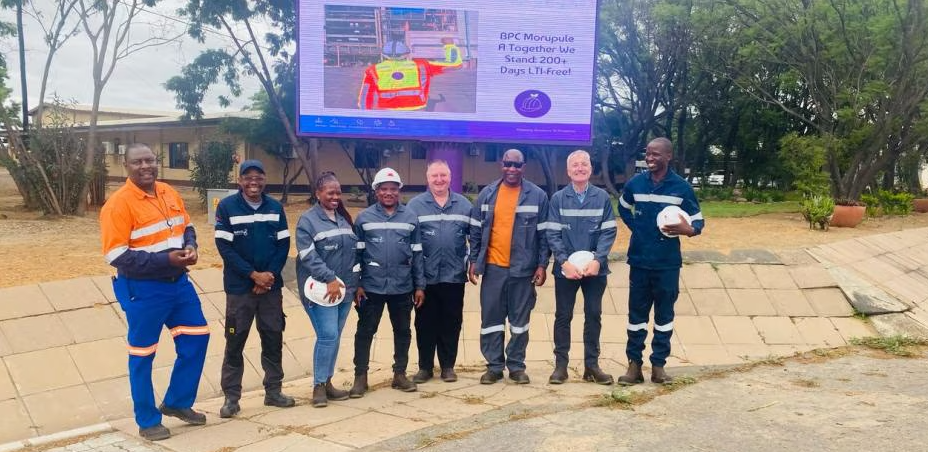 The Botswana Power Corporation, British Council, Cardiff and Vale teams during a site visit at the Botswana Power Corporation plant in Palapye
The Botswana Power Corporation, British Council, Cardiff and Vale teams during a site visit at the Botswana Power Corporation plant in Palapye
Meanwhile, in Tanzania, collaboration between UK institutions and Arusha Technical College has transformed renewable energy training. ‘By sharing active learning methodologies, optmising institutional resources, and enhancing quality monitoring systems, the partnership is not only improving teaching and learning but will also increase the employability of our graduates in response to evolving industry needs and global sustainability goals,’ said Prof Musa N. Chacha, Rector of Arusha Technical College.
 Going Global Partnerships 2024-2025 partnership visit closing event- Arusha, Tanzania.
Going Global Partnerships 2024-2025 partnership visit closing event- Arusha, Tanzania.
Rethinking Higher Education: Innovation for African Universities
With Africa’s university-aged population booming and new skills in high demand, the British Council’s Innovation for African Universities (IAU) initiative reimagines higher education by supporting entrepreneurship, research, and digital adaptability.
IAU is a learning and collaboration platform which brings together Universities in the UK and Sub-Saharan Africa and ecosystem players to engage, interact and learn from each other with the aim of developing mutually beneficial partnerships that strengthen the capacity and capability of Higher Education systems in both locations. The participating countries in SSA are Ghana, Kenya, Nigeria, and South Africa. Rose Sikulu responded to environmental concerns in her Kenyan hometown and found a startup called Fibertext. Rose participated in an IAU project called Transforming Climate Innovation Ecosystems through Inclusive Transdisciplinarity (TransCIIT) | British Council.
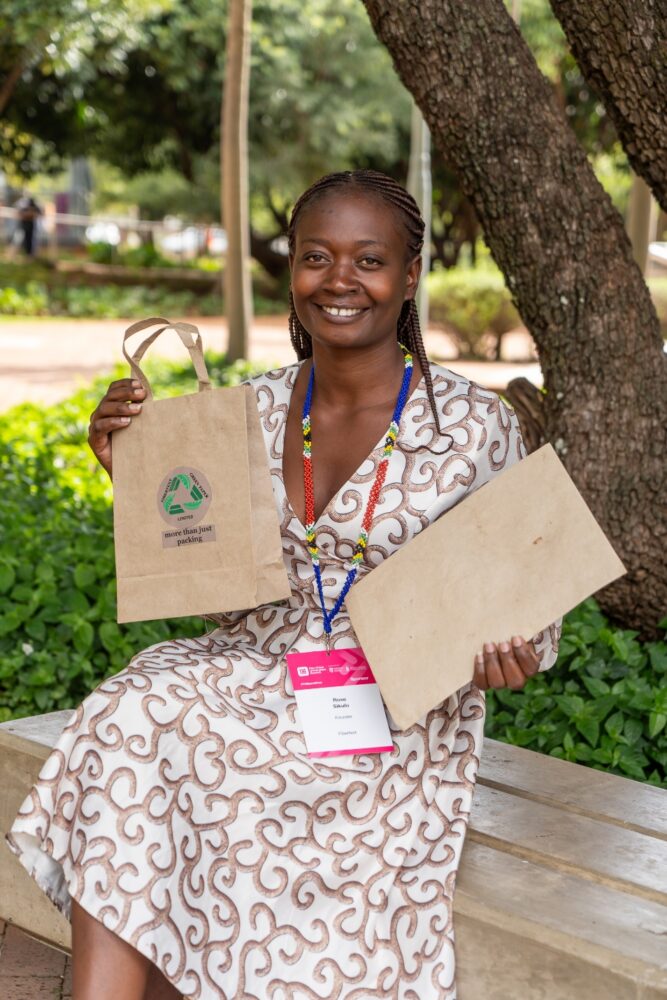 Rose Sikulu Fibertext founder
Rose Sikulu Fibertext founder
The Transforming Climate Innovation Ecosystems through Inclusive Transdisciplinarity (TransCIIT) project collaborated with research and innovation centres, universities, and entrepreneurs to teach young people skills to start and grow businesses that help preserve the environment. The project aims to foster green entrepreneurship through innovation and entrepreneurship.
The social enterprise turns banana waste into eco-friendly bags. The project paired Rose with an IT graduate student, helping her develop a compelling web presence and value proposition. Now, her products are certified, widely sold, and Fibretext employs up to seven people. Olivia Okinyi, another TransCIIT project participant, founded Eco Nasi to recycle pineapple leaves into fabric, with support from the project proving vital to enhancing her visibility to potential investors. After partnering with a postgraduate software engineer through TransCIIT, Olivia’s business drew the attention of Kenya Airways, which featured her products in their in-flight magazine while cabin crew wore footwear made from her sustainable fabrics on a flight from Nairobi to the Netherlands.
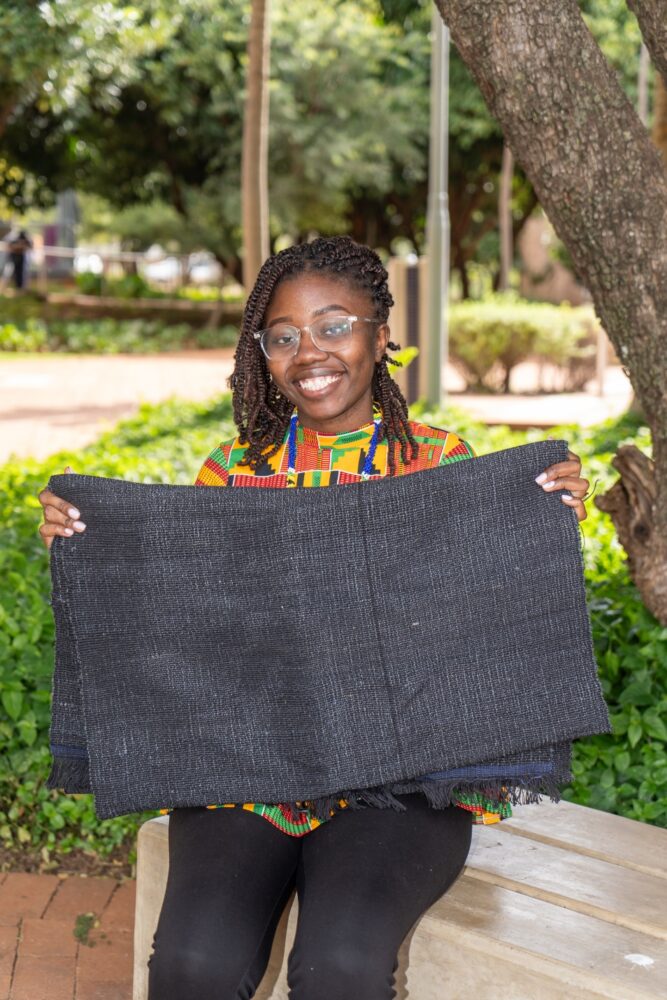 Olivia Okinyi founder Eco Nasi
Olivia Okinyi founder Eco Nasi
Ongoing Impact: A Call to Action
The stories featured here are mere snapshots of an expanding movement driven by the British Council and its partners. Their work has enabled thousands of young people to gain practical skills, launch ventures, and build international connections. Participants in the British Council’s Art Programmes have consistently highlighted the invaluable opportunities these initiatives provide for networking, collaboration, and growth. According to the British Council’s ‘Evaluation of the Sub-Saharan Africa Arts and Culture Programmes Year 3: 2023-2024′ report, participants cite an average 14% increase in business-related skills and confidence. Most notably, 85% felt confident in creating partnerships across Africa and internationally after completing a programme. These and other outcomes have been instrumental in strengthening ecosystems for emerging artists and entrepreneurs across the region.
Yet, there is more to be done, especially as Africa’s youth population continues to grow; by 2050 one in every three young people globally will be African, and Africa’s working-age population will constitute 25% of the global working-age population. The British Council calls on governments, funders, and all who champion youth engagement to invest in creative, skills-based, and educational programmes. As Lucy Pearson Regional Director Sub-Saharan Africa British Council affirms: ‘By supporting initiatives that drive creativity, partnership, and learning, we can help unlock the potential of Africa’s extraordinary youth.’ The journey has only just begun.
Link to Reports: https://drive.google.com/drive/folders/1nXqIhqDY8eNmzH4UUB2w9yZ0P5FVWBXz?usp=sharing